Biafra Heroes and Heroines
Mazi Ikechukwu Ugwuoha , those in house enemies that assassinated you last night cannot hide forever, it’s just a of matter time they will be exposed and caught.
They thought by killing you they will take over Biafraland , they thought by killing you they have destroyed IPOB , those who planned this evil by assassinating you because you’re fighting for your people will be tracked down .
For over a decade now you’re in the frontline of the Biafra struggle from Abia state cordinator position you rose to Biafraland cordinator, your mobilization ability in Biafraland is top notch, you escaped death during the Aba national high school massacre in 2016, you went to prison and spent over 9months because of Biafra and they could not kill you in the prison but in front of your daughter these in -house enemies murdered you.
Today, you’re gone but your sacrifice will never be forgotten and those that killed shall run for the rest of their lives. #RIP Comrade.
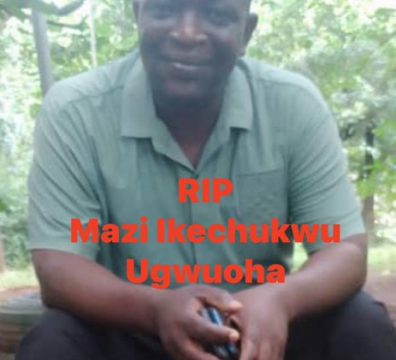
May 30th is observed as Biafra Remembrance Day or Biafra Genocide Remembrance Day. It commemorates the millions of Biafran civilians who died during the Nigerian Civil War, also known as the Biafran War, which lasted from 1967 to 1970. It is a day of reflection and remembrance for the Biafran people and their struggle for independence. Indeed, Biafran Remembrance Day is a day to honor the heroes and heroines who fought and sacrificed for the Biafran cause during the Nigerian Civil War. It’s a day to remember their courage, resilience, and the sacrifices they made for the Biafran people.
Bruce Mayrock: A Life of Passion and Protest

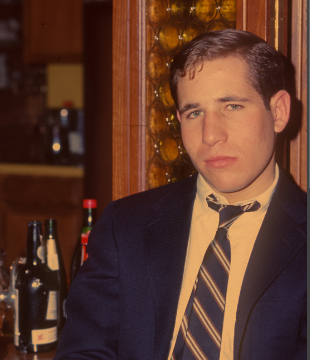

Mayrock’s Protest
Bruce Mayrock was profoundly affected by the images and stories emerging from Biafra. He felt compelled to act, believing that the world was not doing enough to stop the genocide and humanitarian catastrophe. On May 29, 1969, Bruce Mayrock took a drastic step to draw attention to the plight of the Biafran people. He set himself on fire in front of the United Nations headquarters in New York City, carrying a sign that read, “You must stop the genocide—please save 9 million Biafrans.”
Legacy and Impact
Mayrock’s self-immolation was a shocking and poignant act of protest. It highlighted the extreme measures some individuals are willing to take to bring attention to issues of human suffering and injustice. His death underscored the desperation felt by many activists who believed that the global community was not doing enough to prevent the atrocities in Biafra.
Bruce Mayrock’s sacrifice did not go unnoticed. It brought a renewed focus to the Biafran cause and increased pressure on international bodies to address the humanitarian crisis. Although the war continued for several more months, Mayrock’s actions contributed to a greater awareness and urgency about the situation in Biafra.
Remembering Bruce Mayrock
Today, Bruce Mayrock is remembered as a symbol of profound empathy and commitment to human rights. His story is a poignant reminder of the power of individual action and the impact one person can have on global awareness. The legacy of his protest serves as an enduring call to action against indifference in the face of human suffering.
His sacrifice continues to inspire activists around the world, reminding us of the importance of standing up for justice and the need for global solidarity in the face of atrocities. Bruce Mayrock’s name is etched into the annals of history as a testament to the enduring power of compassion and the human spirit’s relentless quest for justice.
Rolf Steiner 4th Commando Brigade in the Biafran Army
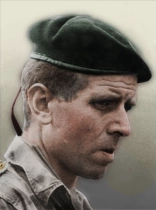
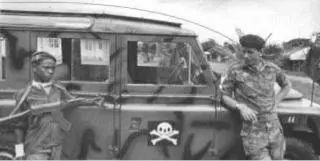
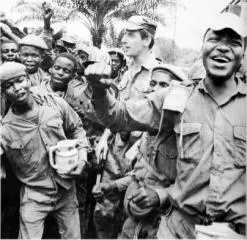
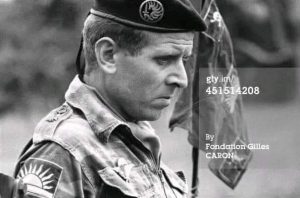
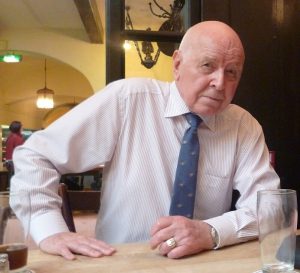
Rolf Steiner (born 3 January 1933) is a German retired mercenary. He began his military career as a French Foreign Legion paratrooper and saw combat in Vietnam, Egypt, and Algeria.[1] Steiner rose to the rank of lieutenant colonel commanding the 4th Commando Brigade in the Biafran Army
Captain Marc Goossens of the Biafran Army
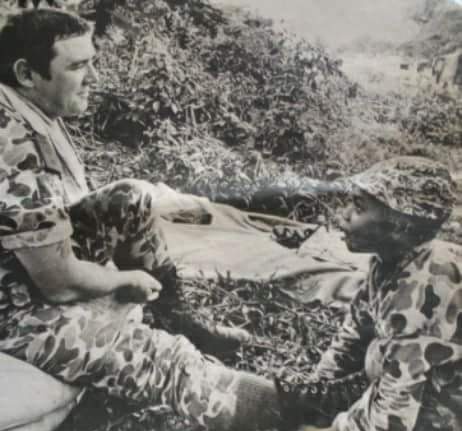
55 years ago today, Belgian Mercenary, Captain Marc Goossens of the Biafran Army and his 9-year-old Biafran orderly at the Onitsha frontline, a few hours before the Captain was killed in battle during the Second Battle of Onitsha, Nov. 27, 1968.
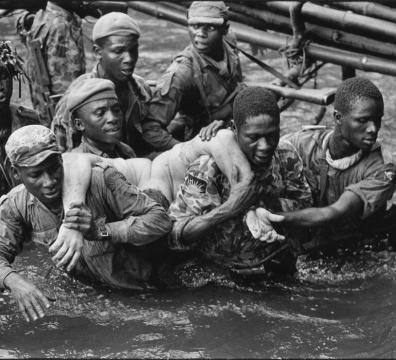
Biafran soldiers carrying the body of Goosens.
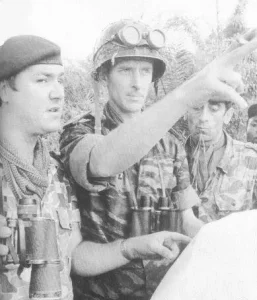
Lecture Part 1, Date 14th of May 2024
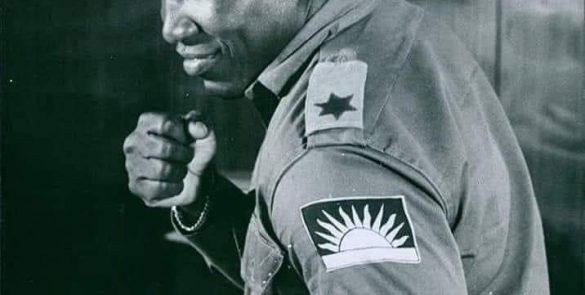
Dick Tiger served as a Lieutenant in the Biafran army, primarily training soldiers in hand to hand combat.
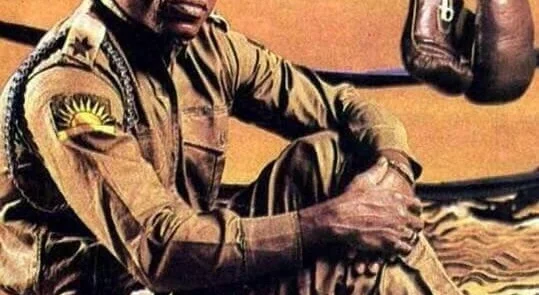
Lecture Part 2. Date 16th of May 2024.
Lecture Part 3. Date 18th of May 2024.
Lecture Part 4. Date 21st of May 2024.
Honoring Biafran Heroes and Heroines: A Tribute to Resilience and Sacrifice
Every year on the 30th of May, the Biafran people gather to commemorate the sacrifices and bravery of our heroes and heroines. This day, known as Biafran Remembrance Day, holds a special place in the hearts of those who endured the hardships of the Biafran War and its aftermath. It is a day to remember the resilience of a people, the sacrifices made for freedom, and the enduring spirit that continues to inspire generations.
This year, we are honored to have Dr. Louis Ukachi as our special guest. Dr. Ukachi is a renowned historian and author whose work has shed light on the untold stories of the Biafran struggle. His research has deepened our understanding of the events leading up to the war, the experiences of those who lived through it, and the legacy it has left behind.
In his keynote address, Dr. Ukachi will reflect on the significance of Biafran Remembrance Day and the importance of honoring the memory of those who fought and died for the Biafran cause. He will remind us that while the physical scars of war may fade, the memories of those who were lost and the lessons learned must never be forgotten.
As we gather to pay tribute to our heroes and heroines, let us also reflect on the challenges that continue to face our people. Let us renew our commitment to justice, peace, and unity, and let us draw strength from the courage and resilience of those who came before us.
In commemorating Biafran Remembrance Day, we honor the past, we celebrate the present, and we commit to building a better future for all Biafrans.
Dr. Louis Ukachi is a historian, author, and advocate for justice and peace. His work has deepened our understanding of the Biafran struggle and its impact on the world. He is a voice for the voiceless, a champion of the oppressed, and a beacon of hope for the future.
The Indigenous People of Biafra (IPOB) primarily seeks a referendum to achieve an independent state of Biafra in southeastern Nigeria. This movement advocates for the rights and self-determination of the Igbo people and other ethnic groups in the region. IPOB emphasizes peaceful protest and civil disobedience as its core strategies. The movement emphasized that the Nigerian government has marginalized the southeastern region and that a separate state is necessary to achieve economic development and protect the cultural identity of its people.
In pushing for a referendum, IPOB aims to achieve its goals through legal and democratic processes. However, the Nigerian government views the secessionist agenda with caution and, at times, has responded with significant security measures. This has led to tensions and confrontations, although IPOB continues to assert its commitment to peaceful methods.
IPOB’s call for a referendum is part of a broader dialogue about self-determination, autonomy, and the rights of ethnic groups within larger national frameworks. Discussions often also address the practicalities of such a separation, the economic viability of a potential new nation, and the international implications of secession in today’s globalized world.
Tip of the Iceberg > NASA Chief, Senator Bill Nelson addressed the United States Congress on Deep Space domination priority program, while the Zoo (Nigerian) Senators are prioritizing cattle herdsmen domination program.
Brother/Comrade/ and a Freedom Fighter to core, My Brother Myman Onyejiaka, While you left us to continue this struggle physical, while you continue doing yours spiritual with our departed heroes and heroines, Keep doing what you were doing Brother..

